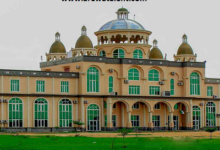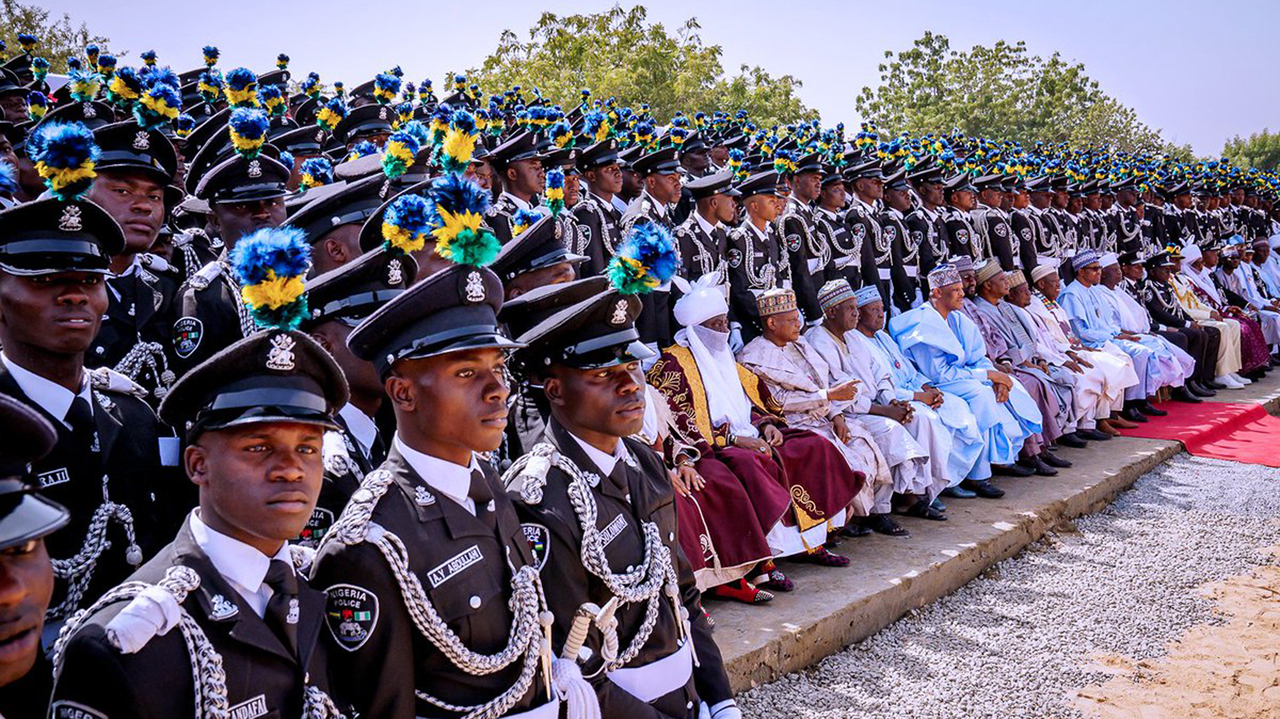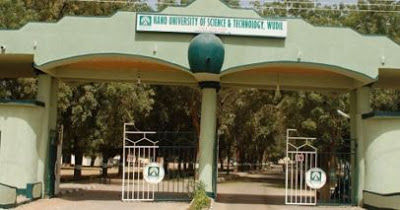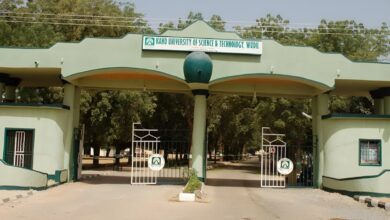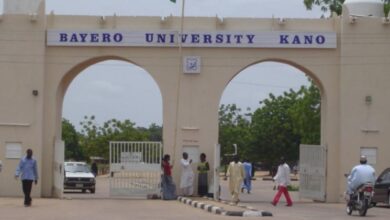Best 25 Polytechnics In Nigeria
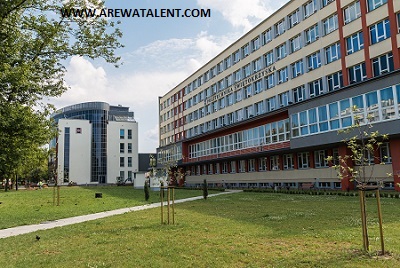
Introduction
Nigeria, with its vibrant education system, offers various avenues for students to pursue higher education. One such option is studying in Nigerian polytechnics. Polytechnics are institutions that focus on providing technical and vocational education, preparing students for the practical aspects of their chosen fields. In this article, we will explore the advantages of studying in Nigerian polytechnics, ranging from practical education and industry-relevant skills to affordability and entrepreneurial focus.
Definition of Polytechnics
Polytechnics in Nigeria are tertiary institutions that offer courses leading to the award of National Diploma (ND) and Higher National Diploma (HND) certificates. These institutions are designed to provide students with a balance of theoretical knowledge and practical skills, enabling them to excel in their chosen professions.
1. Yaba College of Technology, Lagos
2. Federal Polytechnic, Ado-Ekiti, Ekiti State
3. Federal Polytechnic, Bauchi, Bauchi State
4. Federal Polytechnic, Bida, Niger State
5. Federal Polytechnic, Damaturu, Yobe State
6. Federal Polytechnic, Ede, Osun State
7. Federal Polytechnic, Ekowe, Bayelsa State
8. Federal Polytechnic, Idah, Kogi State
9. Federal Polytechnic, Ilaro, Ogun State
10. Federal Polytechnic, Kaura Namoda, Zamfara State
11. Federal Polytechnic, Mubi, Adamawa State
12. Federal Polytechnic, Nekede, Imo State
13. Federal Polytechnic, Nasarawa, Nasarawa State
14. Federal Polytechnic, Oko, Anambra State
15. Federal Polytechnic, Offa, Kwara State
16. Akanu Ibiam Federal Polytechnic, Unwana, Ebonyi State
17. Kaduna Polytechnic, Kaduna
18. Hussaini Adamu Federal Polytechnic, Kazaure, Jigawa State
19. Kwara State Polytechnic, Ilorin
20. Lagos State Polytechnic, Ikorodu
21. Moshood Abiola Polytechnic, Abeokuta, Ogun State
22. Nuhu Bamalli Polytechnic, Zaria, Kaduna State
23. Ogun State Institute of Technology, Igbesa, Ogun State
24. Osun State Polytechnic, Iree
25. Waziri Umaru Federal Polytechnic, Birnin Kebbi, Kebbi State
Brief Descriptions Of The Above Listed Polytechnics
1. Yaba College of Technology, Lagos: Yaba College of Technology is one of Nigeria’s pioneer tertiary institutions. It offers over 120 national diploma and higher national diploma courses in technology, engineering, environmental studies, management, and art and design.
2. Federal Polytechnic, Ado-Ekiti, Ekiti State: This is one of the federal Polytechnics in Nigeria and it provides full-time and part-time programmes in engineering, science, environmental studies, business studies, and arts and design.
3. Federal Polytechnic, Bauchi, Bauchi State: This is a federal Polytechnic that offers training in applied science, technology, management, and humanities. It has various programmes such as national diploma, higher national diploma, and postgraduate diploma courses.
4. Federal Polytechnic, Bida, Niger State: This is another federal Polytechnic that offers training in applied science, technology, and management. It offers courses in national diploma, higher national diploma, and postgraduate diploma programmes.
5. Federal Polytechnic, Damaturu, Yobe State: This Polytechnic offers programmes in business studies, applied science, engineering, environmental studies, and general studies.
6. Federal Polytechnic, Ede, Osun State: This Polytechnic provides training in various areas such as science, engineering, technology, and management. It offers national diploma and higher national diploma programs as well as pre-ND and certificate courses.
7. Federal Polytechnic, Ekowe, Bayelsa State: This Polytechnic offers courses in engineering, applied science, environmental studies, and business studies.
8. Federal Polytechnic, Idah, Kogi State: This is one of the federal Polytechnics that provides training in applied science, engineering, environmental studies, and business studies. It offers national diploma and higher national diploma programs.
9. Federal Polytechnic, Ilaro, Ogun State: This is a federal Polytechnic offering national diploma and higher national diploma programmes in applied science, engineering, environmental studies, and management.
10. Federal Polytechnic, Kaura Namoda, Zamfara State: This Polytechnic offers national diploma and higher national diploma courses in science and technology, environmental studies, art and design, and business studies.
11. Federal Polytechnic, Mubi, Adamawa State: This is a federal Polytechnic that provides training in applied science, engineering, environmental studies, and business studies. It offers national diploma and higher national diploma programmes.
12. Federal Polytechnic, Nekede, Imo State: This is one of the federal Polytechnics that provides training in applied science, engineering, environmental studies, and business studies. It offers national diploma, higher national diploma and post-graduate diploma programmes.
13. Federal Polytechnic, Nasarawa, Nasarawa State: This Polytechnic offers national diploma and higher national diploma courses in applied sciences, engineering technology, environmental studies, and management studies.
14. Federal Polytechnic, Oko, Anambra State: This is a federal Polytechnic that provides training in applied science, engineering, environmental studies, and business studies. It offers national diploma, higher national diploma, and post-graduate diploma courses.
15. Federal Polytechnic, Offa, Kwara State: This is one of the federal Polytechnics that provides training in applied science, engineering, environmental studies, and business studies. It offers national diploma and higher national diploma programmes.
16. Akanu Ibiam Federal Polytechnic, Unwana, Ebonyi State: This Federal Polytechnic offers courses in engineering, environmental studies, science, and business studies. It offers National Diploma and Higher National Diploma programmes.
17. Kaduna Polytechnic, Kaduna: This Polytechnic offers programmes in applied science, engineering, environmental studies, technology, and business studies.
18. Hussaini Adamu Federal Polytechnic, Kazaure, Jigawa State: This Polytechnic provides training in applied science, engineering, environmental studies, and business studies. It offers national diploma and higher national diploma programmes.
19. Kwara State Polytechnic, Ilorin: This Polytechnic offers programmes in applied sciences, engineering, environmental studies, technology, and business studies.
20. Lagos State Polytechnic, Ikorodu: This is a state-owned Polytechnic in Lagos. It offers programmes in applied science, engineering, environmental studies, and management.
21. Moshood Abiola Polytechnic, Abeokuta, Ogun State: This Polytechnic offers courses in applied science, engineering, environmental studies, and management.
22. Nuhu Bamalli Polytechnic, Zaria, Kaduna State: This Polytechnic offers national diploma and higher national diploma courses in engineering, applied science, environmental studies, and technology.
23. Ogun State Institute of Technology, Igbesa, Ogun State: This is a state-owned Polytechnic. It offers programmes in science, engineering, environmental studies, and management.
24. Osun State Polytechnic, Iree: This is a state-owned Polytechnic. It offers National Diploma and Higher National Diploma programmes in technology, science, environmental studies, and business studies.
25. Waziri Umaru Federal Polytechnic, Birnin Kebbi, Kebbi State: This Polytechnic offers national diploma and higher national diploma courses in engineering, applied science, environmental studies, technology, and business studies.
Advantages of Studying in Nigerian Polytechnics
1. Practical Education: One of the primary advantages of studying in Nigerian polytechnics is the emphasis on practical education. Polytechnics provide hands-on training and real-world experiences to students, enabling them to develop practical skills relevant to their chosen industries. Through practical workshops, laboratory experiments, and industry attachments, students gain valuable experience that prepares them for the challenges of the workforce.
2. Industry-Relevant Skills: Polytechnics are known for their focus on industry-relevant skills. The curriculum is designed in collaboration with industry professionals, ensuring that students acquire the skills and knowledge demanded by the job market. This industry-driven approach equips graduates with the necessary competencies to secure employment and contribute effectively to their respective fields.
3. Affordability: Compared to universities, studying in Nigerian polytechnics is often more affordable. The tuition fees and associated expenses in polytechnics are relatively lower, making them accessible to a wider range of students. This affordability factor allows individuals from diverse economic backgrounds to pursue higher education without excessive financial burden.
4. Diverse Course Options: Nigerian polytechnics offer a wide range of courses, catering to various career interests. Whether students aspire to become engineers, computer scientists, fashion designers, or healthcare professionals, polytechnics provide diverse options to suit their preferences. This variety of courses ensures that students can choose a field aligned with their passions and strengths.
5. Opportunities for Employment: Studying in Nigerian polytechnics increases the chances of employment for graduates. Polytechnic education equips students with practical skills that are highly valued by employers. The hands-on training and industry exposure during their studies give them a competitive edge in the job market. Additionally, polytechnics often have strong ties with industries, facilitating internships, job placements, and networking opportunities.
6. Strong Industry Connections: Polytechnics foster strong connections with industries, creating avenues for collaboration and knowledge exchange. Guest lectures, seminars, and industry visits are common in polytechnics, allowing students to interact with professionals and gain insights into current industry trends. These connections also lead to potential job offers, mentorship opportunities, and exposure to real-world challenges, further enhancing students’ career prospects.
Nigerian polytechnics offer a wide range of courses in various fields of study. While the concept of “best” courses can be subjective and depend on individual interests and career goals, there are several popular and highly regarded courses offered by Nigerian polytechnics. Here are some of them:
Electrical/Electronic Engineering: This course focuses on the study of electrical systems, electronics, telecommunications, and related fields. It covers areas such as power systems, control systems, telecommunications, and electronics design.
Mechanical Engineering: This course involves the study of machines, energy systems, manufacturing processes, and related fields. It covers areas such as thermodynamics, fluid mechanics, materials science, and mechanical design.
Computer Science: This course focuses on computer programming, software development, computer networks, and related fields. It covers areas such as programming languages, algorithms, data structures, computer architecture, and software engineering.
Accountancy: This course prepares students for careers in accounting and financial management. It covers areas such as financial accounting, cost accounting, taxation, auditing, and financial management.
Business Administration: This course provides students with a solid foundation in business principles and prepares them for managerial roles in various organizations. It covers areas such as business strategy, marketing, human resource management, and organizational behavior.
Mass Communication: This course focuses on the study of communication and media-related fields. It covers areas such as journalism, public relations, advertising, broadcasting, and media production.
Civil Engineering: This course involves the study of the design, construction, and maintenance of infrastructure such as buildings, bridges, roads, and dams. It covers areas such as structural engineering, geotechnical engineering, transportation engineering, and environmental engineering.
Architecture: This course focuses on the design and construction of buildings and other structures. It covers areas such as architectural design, building technology, architectural history, and urban planning.
Science Laboratory Technology: This course provides students with practical skills in scientific research and laboratory analysis. It covers areas such as chemistry, biology, physics, microbiology, and instrumentation.
Estate Management: This course prepares students for careers in property management, real estate development, and valuation. It covers areas such as property law, property management, real estate economics, and property valuation.
It’s important to note that the quality of education and specific courses offered may vary between different polytechnics in Nigeria. Prospective students should research individual polytechnics and their respective departments to find the best fit for their interests and career aspirations.

